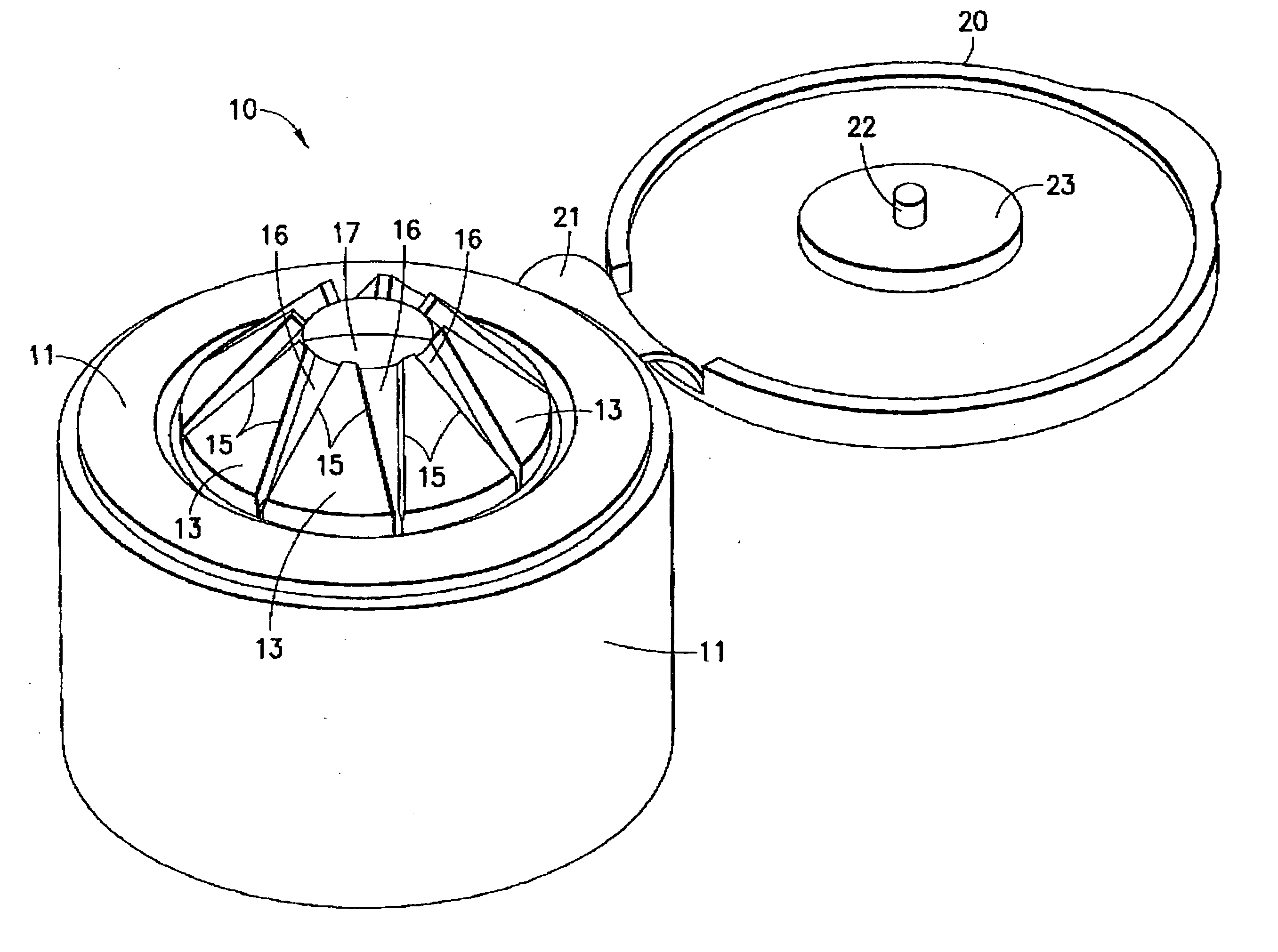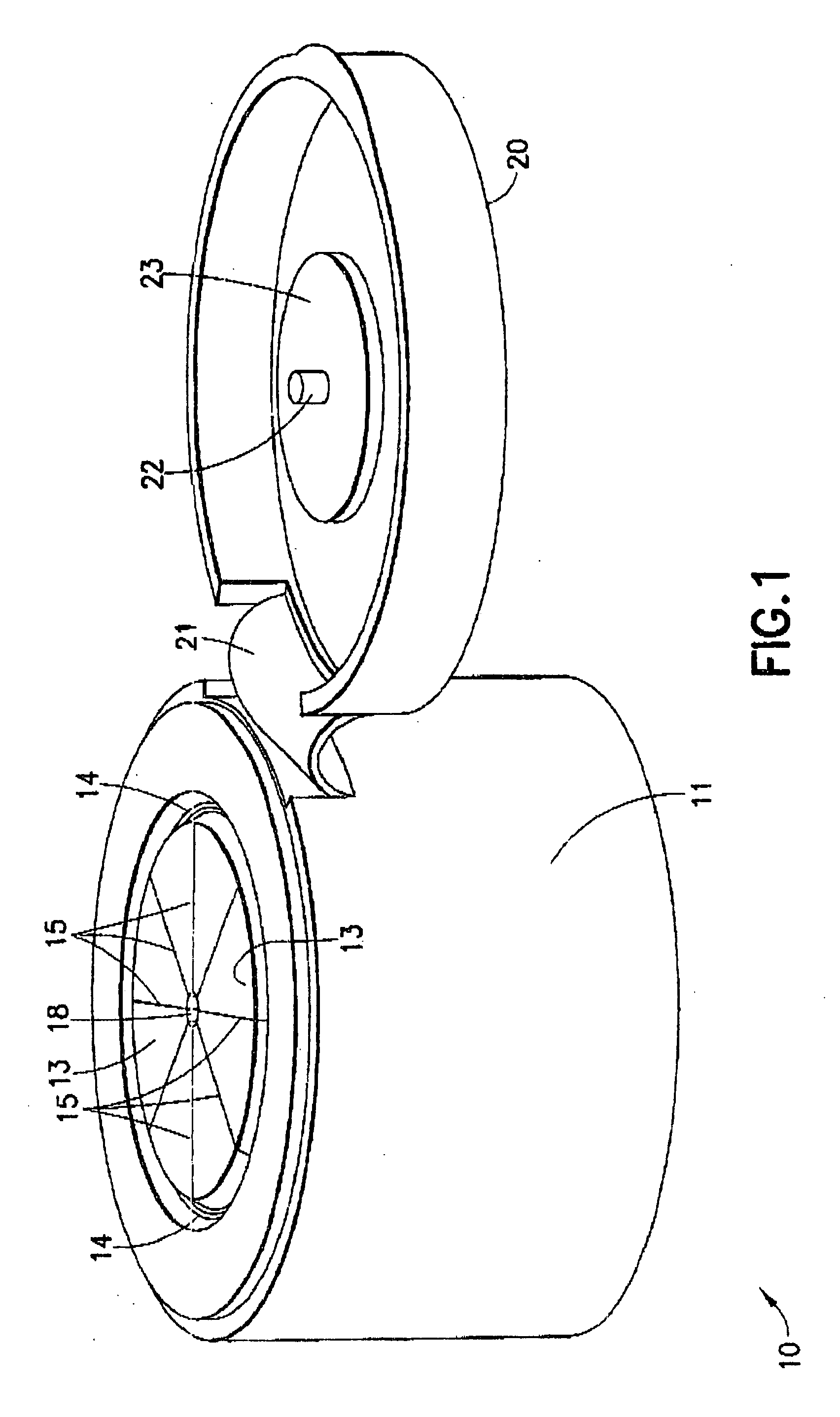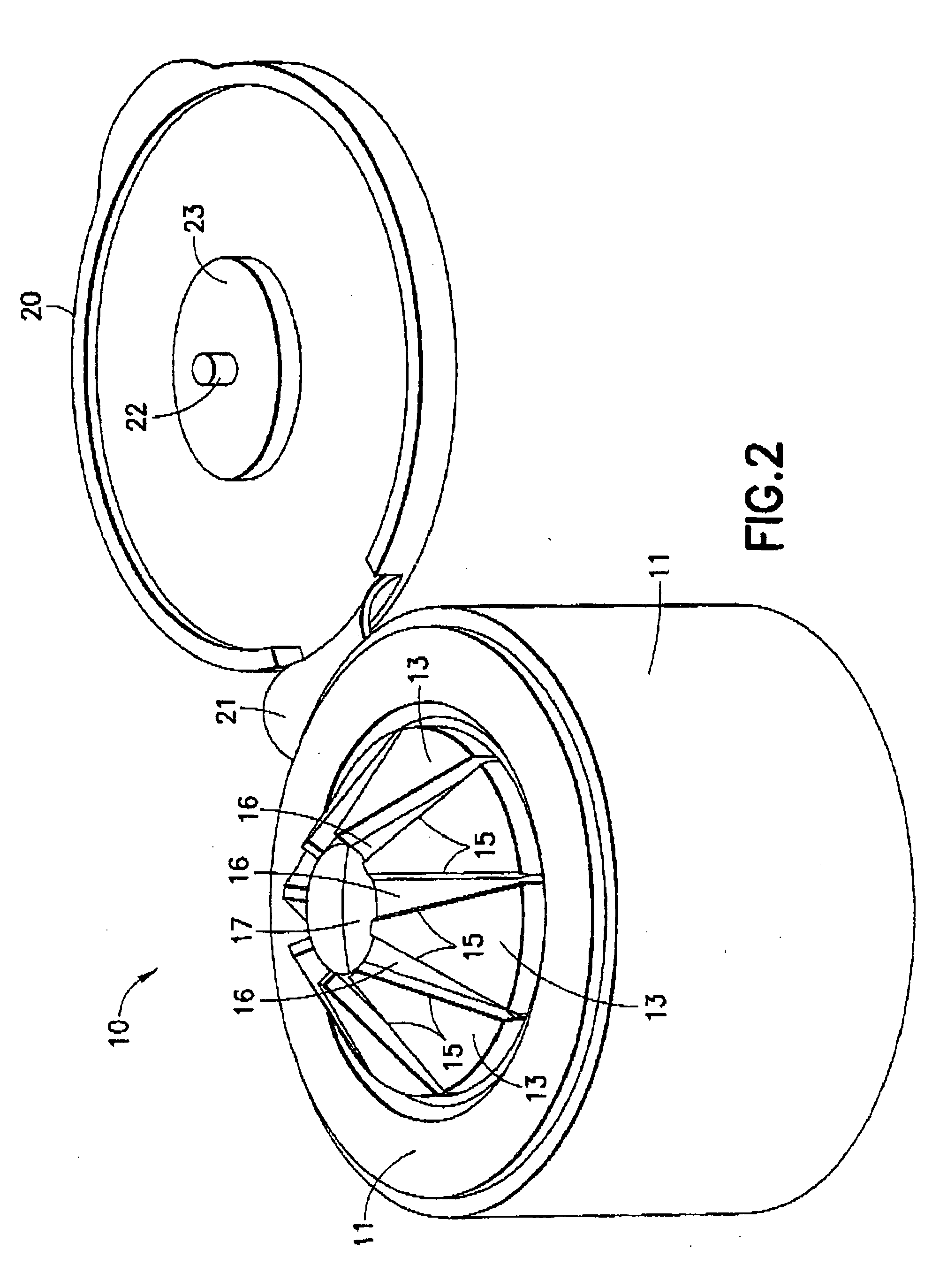Container closure
a container and closure technology, applied in the field of plastic closures, can solve the problems of not closing and sealing properly, high manufacturing cost, and assembly of parts, and achieve the effect of strong construction, reliable and efficient function, and easy and cheap manufacturing
- Summary
- Abstract
- Description
- Claims
- Application Information
AI Technical Summary
Benefits of technology
Problems solved by technology
Method used
Image
Examples
Embodiment Construction
[0020] Referring to FIGS. 1 and 2, plastic closure 10 is shown having annular collar 11 for attachment to a fluid container (not shown) about a dispensing opening in the container. Attachment for example may be by threads 12 (see FIG. 3), snap fittings (not shown), or other known attachment means.
[0021] A plurality of leaflets 13 are positioned at the top of collar 11 and are attached by integral hinges 14 (see in particular FIG. 5) to collar 11. Eight such leaflets 13 are shown, although the number may obviously vary. In the closed position of closure 10, leaflets 13 are shown in FIGS. 1,3,4 and 5 extending adjacent one another in an essentially flat horizontal surface. Each leaflet 13 is a quasi-triangular shape having two long sides 15 that converge in a direction away from the hinge 14 associated with the particular leaflet 13. The long sides 15 of each leaflet 13 lie adjacent the long sides of adjacent leaflets 13 in the closed position of closure 10.
[0022] Integrally attache...
PUM
 Login to View More
Login to View More Abstract
Description
Claims
Application Information
 Login to View More
Login to View More - R&D
- Intellectual Property
- Life Sciences
- Materials
- Tech Scout
- Unparalleled Data Quality
- Higher Quality Content
- 60% Fewer Hallucinations
Browse by: Latest US Patents, China's latest patents, Technical Efficacy Thesaurus, Application Domain, Technology Topic, Popular Technical Reports.
© 2025 PatSnap. All rights reserved.Legal|Privacy policy|Modern Slavery Act Transparency Statement|Sitemap|About US| Contact US: help@patsnap.com



